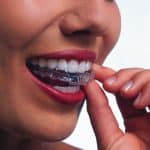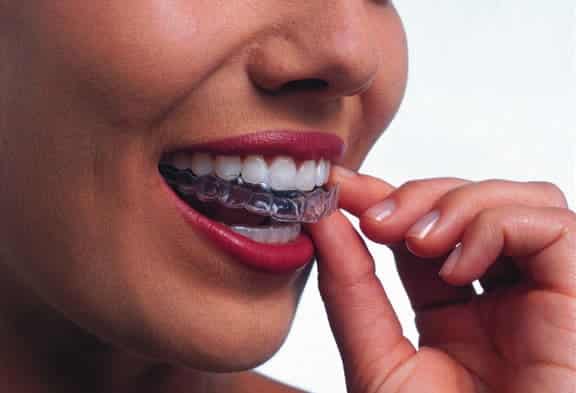
No matter how diligently you care for your teeth during the day, you might be harming your teeth overnight. Are You Grinding Your Teeth While You Sleep? Many people experience teeth grinding and jaw clenching, while they sleep or in stressful situations.
Over time, these actions can wear on your mouth and cause permanent damage if they are not addressed.
Schedule Your Appointment Online!
Causes and Symptoms of Grinding Your Teeth
The most common reasons for teeth grinding and jaw clenching are stress and anxiety. This can occur during the day or while you are sleeping. Even if you are wide awake, you might not even realize that you are doing it.
Bruxism, also known as teeth grinding, is one of many ways that our body physically manifests stress even if our minds aren’t aware of it. The next time you are in a high-stress situation, pay attention to what’s happening in your mouth. Are you clenching your jaw or grinding your teeth around?
Other risk factors for teeth grinding include substance abuse (drugs, alcohol, caffeine), sleep apnea, and bite and alignment issues.
You might notice that your teeth begin to wear down in odd patterns over time. These changes might not be obvious at first since many people grind their molars and back teeth that are not always very visible.
Long-term jaw clenching can lead to earaches and headaches. You might think that you have an ear infection or a migraine, but the cause is actually the jaw because of how closely it’s related to the other parts of your face.
Diagnosis and Treatment of Teeth Grinding
 The best way to confirm whether or not you are grinding your teeth, is to mention your symptoms to your dentist at your next appointment. Your dentist can review the wear patterns on your teeth and examine your jaw to determine whether you’ve been grinding or clenching without realizing it.
The best way to confirm whether or not you are grinding your teeth, is to mention your symptoms to your dentist at your next appointment. Your dentist can review the wear patterns on your teeth and examine your jaw to determine whether you’ve been grinding or clenching without realizing it.
From there, your dentist will likely prescribe a mouth guard, which will prevent your teeth from touching while you sleep and give you something to bite into if you clench your jaw. It won’t take long before you are waking up pain-free and more refreshed as a result of better sleep.
The mouth guard will probably take some getting used to, but it’s important that you stick with it and continue wearing it. Your mouth will adjust over time and you’ll soon be wondering how you ever slept without one.
How to Get the Help You Need
If you’ve been waking up with an unusual feeling in your mouth or jaw, you might be suffering from bruxism.
Our team at Sampson Dentistry will work with you to develop a customized treatment plan based on your specific symptoms and lifestyle